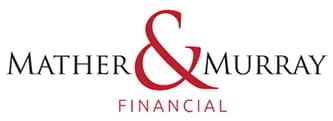Employer Responsibilities for Workplace Pensions & Auto-Enrolment – A Guide for Businesses

By Samuel Mather-Holgate
Running a business is about more than sales, profits, and growth — it’s also about looking after your employees. One of the most important responsibilities you have as an employer is providing access to a workplace pension scheme.
Since the introduction of auto-enrolment, all employers — from sole traders with one employee to large corporations — must offer and contribute to a pension scheme. For businesses in Swindon, Cirencester, and across the country, understanding these rules is essential not only to stay compliant, but also to attract and retain the best people.
When and Why Auto-Enrolment Was Introduced
Auto-enrolment was launched in 2012 by the UK Government, with a phased rollout that finished in 2018. The goal was simple: to address the UK’s looming pensions savings gap. Too many workers were reaching retirement without sufficient savings, so auto-enrolment made it a legal requirement for employers to automatically enrol eligible staff into a workplace pension scheme.
This change has been a major success in terms of participation, but it does mean employers carry significant responsibilities.
Employer Responsibilities
As an employer, your key duties include:
Enrolling eligible staff – Employees aged 22 to State Pension age, earning more than £10,000 a year, must be auto-enrolled.
Making contributions – You must pay at least the minimum employer contribution.
Keeping records – You must maintain accurate records of who is enrolled, contributions made, and communications sent.
Ongoing compliance – You must regularly re-enrol eligible employees and stay up to date with The Pensions Regulator’s requirements.
Communicating with staff – Clear, timely information about their pension rights must be given.
Failure to comply can result in fines or enforcement action by The Pensions Regulator.
Minimum Contribution Thresholds
The current minimum contributions are:
Employer: 3%
Employee: 5%
Total: 8% of qualifying earnings
Qualifying earnings are between £6,240 and £50,270 (for the 2025/26 tax year).
Employers are free to contribute more than the minimum — and many do. Offering above-minimum contributions can set you apart in a competitive job market and show employees you’re serious about their long-term financial wellbeing.
How to Set Up a Workplace Pension Scheme
Setting up a scheme is straightforward, but it needs to be done properly:
Choose a scheme – Popular providers include Nest, The People’s Pension, Aviva, and Scottish Widows.
Register with The Pensions Regulator – You must confirm your compliance within five months of your staging date or when you employ your first worker.
Integrate with payroll – To ensure contributions are deducted and paid correctly.
Communicate with staff – Employees must be told how auto-enrolment works and what contributions will be made.
Review regularly – A scheme that fits today may not be right tomorrow. Annual reviews ensure competitiveness and suitability.
Why Use a Financial Adviser?
While it is possible to set up a scheme alone, using an independent financial adviser can add significant value.
Getting the Right Scheme
We compare the whole market to find the pension scheme that best fits your business, your employees, and your budget.
Supporting Your Employees
We can provide workplace financial education, group presentations, or one-to-one sessions to help staff understand their pensions and feel more engaged with saving for retirement.
Beyond Pensions – Group Protection
An adviser can also help you implement wider employee benefits such as:
Death in Service (group life assurance)
Income Protection
Private Medical Insurance
These benefits show employees that you care about their wellbeing and provide extra security for their families.
Business Protection Advice
We also support employers with:
Shareholder Protection – Ensuring business continuity if a shareholder dies or becomes critically ill.
Relevant Life Insurance – A tax-efficient way to provide life cover for directors and key employees.
Local Expertise from Swindon and Cirencester, available natiownide
At Mather & Murray Financial, we’re based in Cricklade — right between Swindon and Cirencester. That makes us ideally placed to support businesses across Wiltshire and Gloucestershire, but we have advisers across the country.
We work with employers of all sizes, offering:
In-office meetings in Cricklade
Virtual meetings via Zoom
On-site visits at your business
This flexibility means you get the advice you need in the way that suits you best.
FAQs About Auto-Enrolment
When did auto-enrolment start?
It began in 2012, with all employers included by 2018.
What is the minimum pension contribution?
8% of qualifying earnings (3% employer, 5% employee).
Do small businesses need to comply with auto-enrolment?
Yes. Even if you employ just one eligible worker, you must set up a scheme.
What happens if I don’t comply?
You could face fines and enforcement action from The Pensions Regulator.
Why should I use a financial adviser for workplace pensions?
An adviser ensures you choose the right scheme, remain compliant, and can add value with wider benefits such as death in service, shareholder protection, and relevant life cover.
Conclusion
Auto-enrolment is more than a legal duty — it’s an opportunity to enhance your workplace benefits and show employees that you value their future. By working with an independent financial adviser, you can make sure your scheme is competitive, your staff are supported, and your business is fully protected.
Contact Mather & Murray Financial today on 01793 261626 or BOOK A CALL BACK to learn more about pensions, auto-enrolment, and how we support businesses in Swindon and Cirencester.

